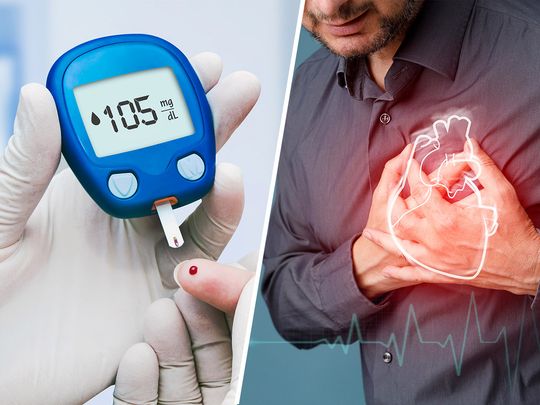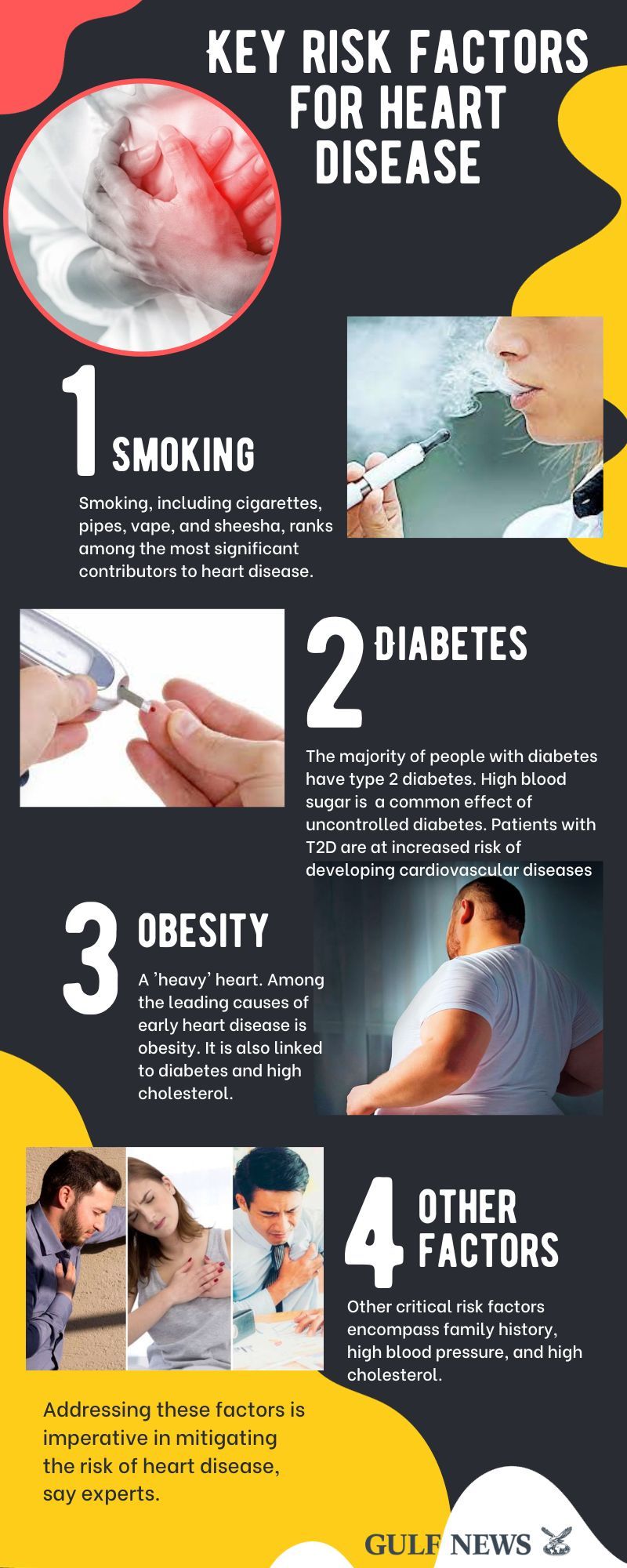
New research has shed light on the heightened risk of cardiovascular disease (CVD) in individuals with diabetes, revealing a staggering two to four times increased risk compared to the general population.
Cardiology Advisor, which recently published the study underlining the profound impact of diabetes on cardiovascular health, pointed that CVD stands as the leading cause of death among those living with diabetes.
This critical association took centre stage on National Diabetes Heart Connection Day, observed annually on November 9, as experts seek to amplify awareness about the perilous link between diabetes and heart disease.
Diabetes, the so-called "silent pandemic" from carbohydrate intolerance, is a chronic condition affecting the body's insulin production or use, is a major contributor to heart disease. November 14 is World Diabetes Day.
422 m
number of people with diabetes as of end-2022 (Source: WHO)Number of diabetics
A key factor in the diabetes pandemic is what experts call "carbohydrate toxicity" — overconsumption of carbs — as well as the global addiction to sweets, but little activity that helps burn excess carb intake. The statistics are staggering:
The WHO reported that about 422 million people worldwide have diabetes as of 2022— the majority living in low-and middle-income countries. About 1.5 million deaths are directly attributed to diabetes each year, the UN agency reports.
Sustained high blood sugar is a key risk factor that can inflict damage on blood vessels, impacting vital organs such as the heart.
According to the International Diabetes Federation (organisers of World Diabetes Day), 1 in every 9 people will be living with diabetes by 2030.
73 m
number of people with diabetes in the MENA regionData from the federation states that 73 million people in the Middle East andNorth Africa (MENA) region have diabetes, with the figure expected to increase by 87 per cent to over 135 million people by 2045.
In a poll conducted by the federation, it emerged that over 9 in 10 people with diabetes who are among the respondents said that they had experienced at least one diabetes-related complication.
How diabetes leads to heart disease
Elevated blood sugar levels, indicated by the HbA1C (three-month blood sugar level) test, play a pivotal role in this trend, the study pointed out, the US Centres for Disease Control and Prevention reported. Recognising these interlinked health concerns is the first step toward a proactive approach, according to the Cardiology Advisor.
While the intricate mechanisms connecting the two conditions aren't entirely confirmed, pathways include independent cardiovascular risk factors like hypertension, dyslipidaemia (the imbalance of lipids such as cholesterol, low-density lipoprotein cholesterol, triglycerides, and high-density lipoprotein), and obesity, especially in type 2 diabetes.
Hyperglycaemia (elevated blood glucose, or high blood sugar), which potentially leads to inflammation and oxidative stress, is also identified as a key mediator in both type 1 and type 2 diabetes.
However, experts point out that effective glucose management is not just about maintaining blood sugar levels within the recommended range. Ratther, they emphasise the need for holistic diabetes management.
Curbing diabetes
A comprehensive strategy to combat diabetes encompasses lifestyle adjustments — primarily regular exercise, hitting the desired weight based on a person's body mass index alongside regular monitoring, and collaboration with healthcare providers.
In September, AAA revealed a cutting-edge Diabetes Global Industry IT platform and dashboard, which showed that of all those living with diabetes, only 50 per cent of individuals have access to licensed healthcare services.
"Such disparity highlights the pressing need to improve access to diabetic care across the world," the report stated.
Emphasising the importance of knowing one's HbA1C levels, experts stress that awareness is key to averting potential risks.
Roche Diabetes Care's Medical Head, Dr. Caterina Pesenti, also highlighted interventions that can mitigate cardiovascular risks for those living with diabetes.
This includes the use of innovative technologies and a range of solutions designed to support individuals in their diabetes management journey.
Advancements in diabetes care have led to tools ranging from glucose monitoring to digital health solutions.
These innovations not only empower individuals but also foster a collaborative approach between patients and healthcare providers.
Holistic management
Regular self-monitoring, medication adherence, and lifestyle adjustments, such as maintaining a healthy weight and regular exercise, form the pillars of effective diabetes management.
Health experts propose a “holistic” approach to diabetes care, in which individuals with diabetes can take charge of their health, reduce the risk of cardiovascular complications, and strive for a future where the impact of diabetes on heart health is minimised.
Dr. Robert Gabbay, Chief Scientific and Medical Officer for the American Diabetes Association (ADA), stressed the importance of holistic diabetes management, considering multiple co-morbidities and not solely hyperglycaemia.
Over time, this damage can lead to heart disease.
November 14 marks World Diabetes Day, a global initiative to raise awareness about diabetes and its impact on millions of lives.
Medications
Recent advancements in medications, such as GLP-1 receptor agonists and SGLT2 inhibitors, offer targeted benefits for individuals with diabetes and an increased risk of CVD.
Despite these advancements, Dr. Catherine Benziger from Essentia Health Heart and Vascular Center in Duluth, Minnesota, points out that physicians may still face challenges in prescribing these newer agents.

She advocates for a collaborative approach, where primary care physicians, nurse practitioners, physician assistants, cardiologists, and endocrinologists work collectively to control risk factors in patients with diabetes.
Acknowledging the progress in clinical trials and coordinated care for diabetes patients, Dr. Benziger emphasises the need for continued research, focusing on health-related social needs such as food insecurity and financial strain.
The "Know Diabetes by Heart" programme, a collaboration between the ADA and the American Heart Association (AHA), aims to reduce cardiovascular risks in people with type 2 diabetes through comprehensive resources for healthcare professionals and patients.
As we delve into the complexities of managing diabetes and its impact on cardiovascular health, experts have made a collective call for healthcare providers to adopt a multifaceted approach.
By addressing not only hyperglycaemia but also associated risk factors and utilising innovative medications, the existing gaps in diabetes care could be bridged, thus ensuring a healthier future for those living with this chronic condition.
While the focus often centres on blood sugar management, it's crucial to delve into a lesser-explored aspect: the relationship between diabetes and cardiovascular health. It serves as a reminder that collective efforts can pave the way for a healthier, heart-conscious world, said Dr. Pesenti.










